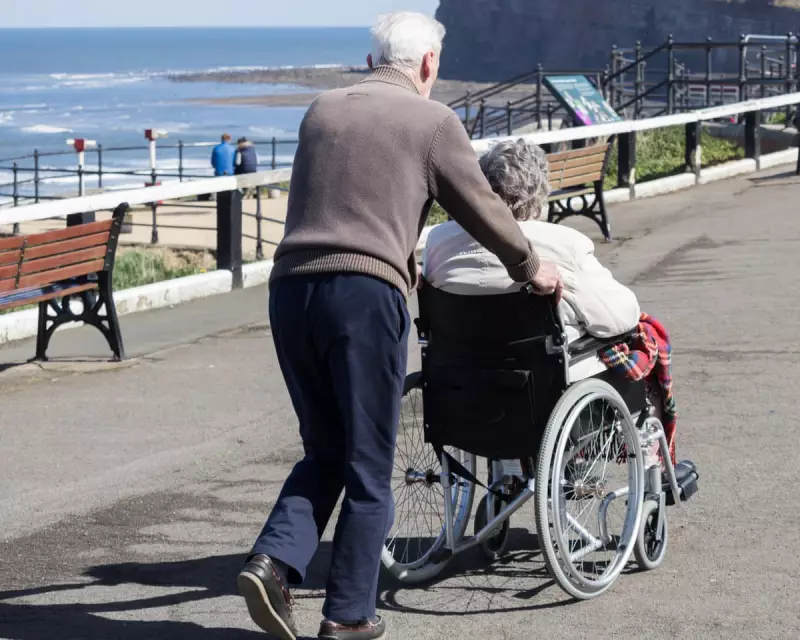
A damning independent review has exposed systemic failures within the Department for Work and Pensions' handling of Carer's Allowance, revealing how unpaid carers were wrongly treated as criminals and driven to the brink of suicide.
The year-long investigation by Liz Sayce, sparked by a Guardian probe, details a "dysfunctional" system where the DWP failed to notify carers they were accruing enormous debts for years. The 146-page report describes how some carers felt so "overwhelmed" and criminalised they considered killing themselves.
Devastating Human Cost of System Failures
The report highlights the profound impact on vulnerable unpaid carers, nearly three-quarters of whom are women. Many claimants already live in poverty, with 40% struggling with their own health issues while caring for loved ones.
One carer told investigators they "lost weight, I couldn't sleep" after being ordered to repay money. Another described feeling "so shocked. I felt shame" and didn't tell their own family. The stress damaged family relationships and even affected the health of those being cared for, with some local authorities forced to take over care at additional cost to the state.
Sayce noted that some cared-for individuals "still felt this weight of worry up to the point of their death."
Deliberate Policy of Ignoring Alerts
One of the most shocking revelations concerns the DWP's deliberate decision to ignore half of all real-time alerts flagging carers who had breached their earnings limit.
The department's Verify Earnings and Pensions (VEP) alert service provided near real-time notifications when carers exceeded the £151 weekly earnings threshold. However, officials calculated they only needed to investigate 50% of these alerts to meet internal fraud prevention targets.
This policy meant 230,400 unpaid carers who earned above the limit between 2018 and 2024 were not notified until months or years later, allowing debts to accumulate. One carer remained on the VEP database for five years without action.
The Brutal 'Cliff Edge' Rule
The report condemns one of the harshest elements of Carer's Allowance: the "cliff edge" rule where carers who exceed the earnings limit by just 1p must repay the entire week's benefit of £83.30.
This means someone overstepping by 1p weekly for a year faces repaying £4,331.60 plus a £50 civil penalty, rather than just 52p. Sayce was unequivocal that ministers must "remove or reduce the impact" of this rule urgently.
Criminalisation of Unpaid Carers
The review found the DWP treated carers as "guilty before being proven innocent," assuming "negligence as a default." In reality, most overpayments resulted from official error rather than deliberate rule-breaking.
Claimants of Carer's Allowance receive more £50 civil penalties than recipients of any other benefit, despite there being eight times fewer unpaid carers than Universal Credit claimants.
Between 2018 and 2024, 852 unpaid carers were referred for criminal prosecution, with a further 1,510 receiving fines of up to £5,000. Sayce recommended these should end for all but the most serious deliberate cases.
Outdated System Unfit for Modern Britain
First introduced in 1976, Carer's Allowance was described as "an outdated benefit [that] has become ever less fit for purpose" in today's world of zero-hours contracts and irregular work patterns.
The system relies on outdated technology within a disjointed department, with even DWP officials appearing unclear on the rules. One carer was reportedly told about pension contributions: "Sometimes they do, sometimes they don't. Depends who you get."
Government Response and Reforms
The DWP has promised to review approximately 185,000 cases spanning ten years to 2025, focusing on whether carers would have been penalised under an average earnings assessment.
Work and Pensions Secretary Pat McFadden said the department had accepted the vast majority of Sayce's 40 recommendations and was "considering longer-term reforms" to modernise the allowance, including replacing the cliff edge with a tapered system.
However, the response included no official apology or offer of compensation for affected carers, despite McFadden stating: "Rebuilding trust isn't about warm words – it's about action, accountability, and making sure our support works for the people who need it most."






